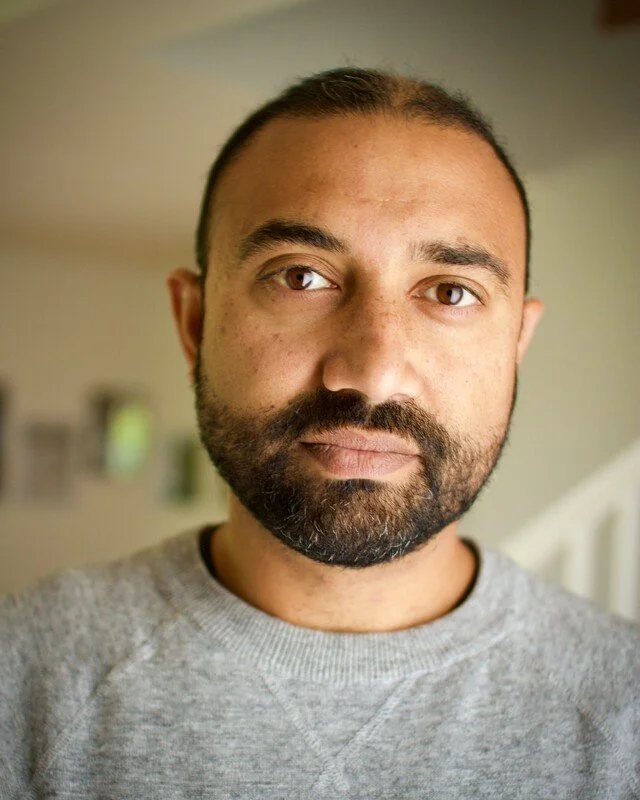Sundar Prize Film Festival opener Paper Flowers ensures the sun never sets on Shalin Shah's legacy
Director Mahesh Pailoor and producer Asit Vyas tell the impactful true story of a young man diagnosed with terminal cancer
Paper Flowers.
Sundar Prize Film Festival screens Paper Flowers during an opening night event on April 10 that runs from 5:30 pm to 11:30 pm
AT THE BEGINNING of Paper Flowers, Shalin Shah shares that he has seen 8,343 sunsets in his lifetime. “I’m one of the lucky ones,” he says. By the end of the film, the 22-year-old has that same positive outlook on life despite his terminal cancer diagnosis.
Paper Flowers dramatizes the true story of Shah, who passed away from synovial sarcoma in 2015. He was a University of Southern California graduate and served as a Peace Corps volunteer in Peru before he was forced to return to the U.S. to see a doctor because of a severe cough, difficulty breathing, and rib pain.
Paper Flowers producer Asit Vyas, who’s based in L.A., is a distant relative of Shah’s. In a Zoom call with Stir and fellow L.A. director Mahesh Pailoor, he says that he watched Shah’s story unfold in real time—and that he always believed the young man had a promising future ahead of him.
“On his first death anniversary, when I saw that people from all walks of life were sharing how Shalin’s story changed their lives for good, you know, I agreed with them,” Vyas says. “I agreed with many of them. It changed my life too. It taught me to live in the present moment, to live with gratitude, and to live unconditionally. So it was very impressive. That day, when I heard all these people sharing their experiences, and also when I heard that his father said it was Shalin’s last wish to spread his story to as many people as possible, I decided that I’ll make a film on this, and I’ll do my part to share his story.”
Paper Flowers will screen alongside the animated short “Have I Swallowed Your Dreams” on opening night of this year’s Sundar Prize Film Festival, which runs from April 10 to 13. This may not be the first time some folks have heard Shah’s story; it was shared with the world shortly before his death in 2015, when HuffPost published his article “Thank You, Cancer”.
“Had terminal cancer not happened to me, I would not have been able to inspire my closest friends and family to appreciate the beautiful gift of life a little more and live more appreciative and positive lives with my story,” Shah wrote. The article went viral, along with the hashtag #SunsetsForShalin on social media, which allowed thousands of people around the world to honour him by capturing and sharing their own sunset photos.
The contemplative beauty of sunsets is not lost in Paper Flowers. In one scene, a soft golden glow is cast over a Peruvian field as Shah (played by Kapil Talwalkar) journals about his time in the Peace Corps. In another, buttery-yellow rays shine on Shah and his best friend Milan (Karan Soni) as they rock on a backyard swing set, sipping beers during a moment’s escape from a graduation party.
Director Mahesh Pailoor.
The film’s title was chosen because paper flowers played a big role in Shah’s life. When he was younger, Vyas recounts, Shah witnessed his father give his mother a bouquet of flowers on their anniversary—but when they inevitably began to wilt the next day, she promptly threw them out, much to Shah’s dismay. So he learned how to craft paper flowers, which he gifted to his mom and, later on, his girlfriend.
“There was an idea that paper flowers never die, so they live on forever, right?” Pailoor says. “This idea that things are permanent, they last forever. But in Shalin’s life, and then also in the movie, there comes a realization that things do die, and part of dying is what gives life and gives joy. You need both the yin and the yang. You need the contrast. And so that’s where the title kind of had more importance, where especially towards the end of the movie, Shalin chooses to have real flowers at his wedding instead of paper flowers, in the acceptance that death is part of life. You need both, and things can’t last forever in certain ways.”
Shah marries his high-school sweetheart Frances Chen shortly before he passes away (in the film she’s called Fiona, played by Olivia Liang). Though their relationship isn’t always easy—mainly because of parental disapproval—it adds a certain coming-of-age charm to Paper Flowers. We see the pair pose for cute couple photos in their grad caps and gowns; later, Fiona smuggles an increasingly ill Shah out of his room so he can indulge in a moment of freedom, made all the more glorious by greasy fast-food burgers.
Paper Flowers won the Social Impact and Vision Award at the Ojai Film Festival and Best of Fest at Palm Springs International Film Festival. Pailoor’s directorial experience spans the feature film Brahmin Bulls (which he also cowrote), along with several episodes of The Blacklist on NBC and S.W.A.T. on CBS. But it was making Paper Flowers, he said, that had a long-lasting impact on him.
“It’s been very profound for me, just as a person and as a filmmaker, because I think Shalin’s message taught me so much about being present, living in the moment, and really not taking anything for granted,” Pailoor says. “And of course, those things can be cliché, kind of, but I think seeing them through him gave a lot more meaning and weight.”
After a screening in Palm Springs, Pailoor recalls, viewers were lining up to give Vyas hugs and thank him for his work. It’s all part of a decision to ensure that the sun doesn’t set on Shah’s legacy, say the pair.
“It’s not in the movie,” Vyas says, “but at the end, I know of some discussion with him in which he said that the sunset is not real. It’s our limitation of our vision, you know? The sun never sets, it’s just that we are so limited to one spot that we think, ‘Oh, the sun is setting.’ And it’s a myth, the sun never sets. So that goes very well with his life—he was dying, and then he was realizing this, that he was not going to die. Somewhere, he’s going to go and he will live forever.” ![]()


























